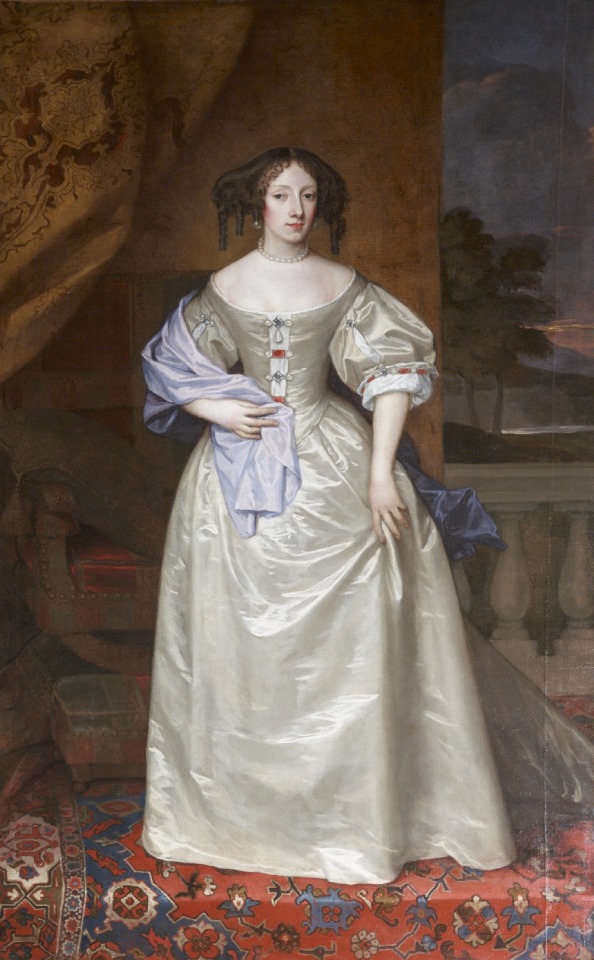#henriette d'angleterre
Text


Period dramas dresses tournament: Grey/Silver dresses Round 1- Group D: Antonia Svenska, The great vs Henrietta of England, Versailles
#period drama dresses tournament#tournament poll#tumblr tournament#polls#fashion poll#antonia svenska#the great#henrietta of england#versailles 2015#versailles#gs r1#henriette d'angleterre#lady svenska
8 notes
·
View notes
Photo

42 notes
·
View notes
Text



#versailles#versailles gif#henriette d'angleterre gif#henriette d'angleterre#noemie schmidt#noemie schmidt gif#henrietta of england#henrietta of england gif
13 notes
·
View notes
Text
"They were unhappy with my refusal"
It was Louis XIV's good fortune that the early years of his personal reign coincided with the end of nearly a century of intermittent civil strife. Condé's crushing defeat during the Fronde was a lesson few would forget, and it underlined, if that were necessary, that the loss of favour or dissatisfaction with those in whom the monarch placed his trust was no longer a justification for plots or rebellion. Cold steel had played the dominant part in that transition, but it was accompanied by changing attitudes among the elites who had also suffered grievously from these violent struggles and both the monarchy and the nobility needed time to adjust to the new realities of power. Yet for all his advantages, Louis XIV was still confronted by the often-inflated ambitions of his relatives, who were constantly hoping for military commands, governorships, or other offices, and he could never forget that they were liable to interpret any refusal as a personal rebuff. In his memoirs the king had described the court early in his reign as an agitated forum where habits of negotiation with ministers had created a climate where favour was "demanded and snatched rather than awaited, always having repercussions from one to another, no longer obliging anyone, only good for mistreating those whom one wished to refuse." The challenge for the young monarch was to educate the grandees in the need for patience and to convince them that he would reward loyalty and obedience. To achieve that aim, he needed to show a capacity to impose order on his own family, which in many ways set the tone for the rest of the court, and even for a monarch as charismatic and conscientious as Louis XIV it was impossible to satisfy everyone. He was constantly challenged by the demands or actions of others, and the reality of court life was very different from the serene façade that is often portrayed.
In his memoirs the king referred to an incident in 1666 when his brother, Philippe duc d'Orléans, known by his title of Monsieur, had requested the governorship of Languedoc. Well aware that this populous and wealthy province had been the springboard for previous revolts the king had already refused the same request in 1660, and he again disappointed his brother arguing that he did not wish to see "the great governorships in the hands of the sons of France, who for the good of the state, must never have any other refuge than the court nor other place of safety than in the heart of their brother." While that argument might seem prudent, Monsieur had no choice other than to insist in order to uphold his own rank and prestige because, although the precedent might not help his case, the recently deceased Gaston d'Orléans had once held that governorship. The king's rebuff was keenly felt, and, according to Louis XIV, his brother and his wife, Henriette d'Angleterre, egged on by the
"fine words of some troublemakers, displayed in various ways that they were unhappy with my refusal. For my part, without giving any sign of having perceived anything untoward, I left them the time to think better. And, in fact, coming back to themselves soon afterward, they both asked me to forgive them for the hot-headedness that they had shown."
Louis XIV's equanimity had stood him in good stead because, as with their father and Gaston, the potential for serious conflict between the royal brothers was always present. As recently as the spring of 1658, when the king had fallen gravely ill while on campaign, rumours had been circulating of aristocrat malcontents flocking to Monsieur in the hope of toppling Cardinal Mazarin.
According to one scholarly account, a desire to avoid a repetition of the struggles between Louis XIII and Gaston had led first Mazarin and subsequently Louis XIV to follow a conscious policy designed to crush the personality and ambitions of Monsieur. It is true that despite living most of their lives in close proximity the brothers were never intimate, and Monsieur was clearly forced to accept a subordinate position. Some of the latent political tension was defused by the birth of a dauphin in November 1661, which created a buffer between the younger brother and the throne, even if it could not prevent regular and sometimes angry disputes. Yet the idea of the king systematically undermining Monsieur is far from compelling.
Julian Swann- Exile, Imprisonment, or Death: the Politics of Disgrace in Bourbon France
#xvii#julian swann#exile imprisonment or death: the politics of disgrace in bourbon france#louis xiv#louis ii de bourbon condé#la fronde#philippe de france duc d'orléans#monsieur#gaston d'orléans#henriette d'angleterre#cardinal mazarin
5 notes
·
View notes
Text
youtube
Petit rappel que le frère de Louis XIV, Philippe d'Orléans, était très très gay, a passé sa vie avec son amant Philippe, Chevalier de Lorraine (et d'autres favoris) malgré son premier mariage à sa cousine Henriette d'Angleterre et son deuxième mariage avec Elisabeth-Charlotte, princesse Palatine.
#gay#homosexual#happy pride#queers de france#French and LGBTQ+#philippe d'orléans#monsieur#chevalier de lorraine#monchevy#versailles canal+#Youtube
4 notes
·
View notes
Photo

Posthumous portrait of Henriette d'Angleterre (Princess Henrietta -1644-1670-), daughter of King Charles I of England and Duchess of Orléans.
#royaume de france#maison d'orleans#bourbon orleans#scottish dna#house of stuart#full length portrait#Sir Peter Lely#house of stewart#duchesse d'orleans#full-length portrait
9 notes
·
View notes
Text
#can't fit all my muses in one poll#so i will post different polls with different muses#in a sort of interest checker thing#ooc#poll things
0 notes
Text

CALENDRIER DE L'AVENT : 24 (ou peut-être plus) femmes utilisables comme personnages féminin dans de récits de cape et d'épée se déroulant sous le règne de Louis XIII.
24 - Les trois soeurs de Louis XIII. On les oublie souvent, mais les filles d'Henri IV et de Marie de Médicis n'ont pas été de simple potiche. Alors certes, leur statut de princesses les fait quitter la France, mais elles resterons en contact avec leur pays de naissance !
Elisabeth deviendra reine d'Espagne par son mariage avec Philippe IV. Grande mécène de la littérature espagnole, elle arrivera tard sur la scène politique. Avec la conspiration des dames, elle fera tomber Olivares (le richelieu local). Hélas, elle meure en couche à 40 ans.
Christine deviendra duchesse de Savoie. Régente, elle affronta ses beaux-frères pour la gestion de ses Etats. Elle demandera l'aide à la France mais refusera toujours de se retrouver sous domination. Richelieu, sur son lit de mort, avouera qu'elle lui a donné des sueurs froides.
Henriette sera reine d'Angleterre. Débarrasser de Buckingham, elle a une influence considérable sur son époux. Elle a eu du cran cette petite, surtout lors des troubles de la guerre civile qui conduira son Charles Ier à l'échafaud. La digne fille de son père !
0 notes
Photo


✧ “Her pleasant, condescending and spirited manner ingratiated her with the whole court. The Queen Mother keeping her much about her person, she was constantly seen in her company. It was so remarked that her mental accomplishments were not less-extraordinary than her personal ones; she was the topic of every conversation, and her praises resounded from every tongue.” — Madame de La Fayette, Histoire de Madame Henriette D'Angleterre
#versaillesedit#perioddramaedit#history#historyedit#french history#henriette d'angleterre#henrietta stuart duchess of orléans#noémie schmidt#17th century#early modern history#versailles tv#house of stuart#period drama#<3#our gifs#our creations
497 notes
·
View notes
Photo



icons of Noémie Schmidt as Henrietta of England in Versailles (x3)
#noemie schmidt#henriette d'angleterre#henrietta of england#versailles#icons#200x200#perioddramaedit#echodesplaines#100disorders#y: 2019
30 notes
·
View notes
Text

I might start posting again, hallelujah 😅
8 notes
·
View notes
Text




4 notes
·
View notes
Photo



Noémie Schmidt as Henriette d’Angleterre (Versailles)
38 notes
·
View notes
Photo

2 notes
·
View notes
Photo




Marie- Louise d'Orléans (1662- 1689)
#versailles s3#the precious daughter#life was hard even for a princess#marie louise d'orléans#philippe d'orléans#henriette d'angleterre
114 notes
·
View notes
Photo


Versailles (2015- ) Created by Simon Mirren and David Wolstencroft
#versailles#versailles 2015#henriette d'angleterre#henriette of england#perioddramaedit#period drama#simon mirren#david wolstencroft#roses#flowers#nature#tv#stills#tv stills#still#noemie schmidt#pretty girl#very pretty#philippedeorleanss#my post
322 notes
·
View notes